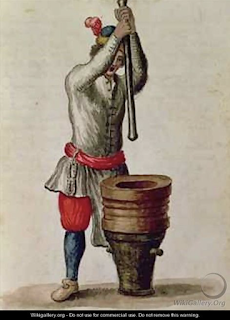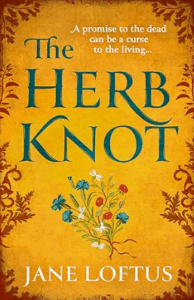Deborah Swift's Blog, page 2
July 10, 2025
Unspoken by Jann Alexander #Texas #CoffeePotBookClub #Dustbowl #1930s
A Farm Devastated. A Dream Destroyed. A Family Scattered.

Deborah’s Review“Reminds me, in tone, of Texas classics like The Time it Never Rained and Giant. I loved it. Alexander is a great new talent in the genre of Texana.” -W.F. Strong, author, Stories From Texas, and radio commentator for NPR Texas
I received a copy of this novel for review via NetGalley.
A thoroughly enjoyable and well-researched historical novel set in the Dust Bowl years in Texas and beyond. Told from the points of view of Ruby Lee and her mother Willa Mae., the novel portrays the hardscrabble life lived by many in the US in the depression, and the effects of drought and deprivation on working people. It also shows us in gripping detail what institutions were like in the 1930s – the portrayals of the orphanage and asylum are poignant and make you shudder.
Ruby Lee is written in an engaging vernacular style, as are her companions on this journey which takes her from being an innocent ten year old to being an adult shaped by her tough experiences. She’s a character you can root for, and the reader wills her to succeed. Her mother Willa Mae is sensitively drawn as a woman whose mind is affected not only by the devastating loss of her family and home, but also by the treatment she must endure in the asylum. – the freezing baths and electric shock treatment.
Historical fiction readers will appreciate the attention to detail, the overalls and aprons hung on the lines by the railroad, the way the children in the orphanage were lined up in sailor suits to have their sham photograph taken, Willa Mae’s memories of the smell of the glove factory. This is a novel for the reader to savour small details that conjure a different time and place.
Although she has a constant longing for home, Ruby Lee develops her own version of morality and resourcefulness as she navigates being dealt the short straw in life. The novel is a wonderful slice of Americana with a heroine to take to your heart, and I highly recommend it.
Connect with Jann
Jann Alexander is an artist photographer and novelist. Her stunning photography features Vanishing Austin, Mother Earth, and Texana, and the Journey into the American southwest and Mexico, along the Mission Trail.
watch The Trailer visit JannAlexander.com follow @JannAlexTX connect on Facebook
The post Unspoken by Jann Alexander #Texas #CoffeePotBookClub #Dustbowl #1930s first appeared on Deborah Swift.July 6, 2025
By Love Divided by Elizabeth St John #CoffeePotBookClub #LydiardChronicles
By Love Divided is the second of the Lydiard Chronicles and wow, what a pageturner it is. I am so surprised that more is not made of the English Civil Wars in books and films. This book exemplifies the themes of this massive period of change and shows the toll it took on the nation of England. Thoroughly convincing and painstakingly researched from documents of the time – these were real people and Elizabeth St John tells their heart-wrenching story with grace and depth. When the Apsley family are left in penury by the death of Lucy’s husband, survival is not easy. His debts are enormous and caused by his recent support for the Duke of Buckingham’s campaigns. Petitions fail, and Lucy must seek other means of survival for herself and her young adult children. Enter Leventhorpe Franke, A Puritan who is intent on helping her regain her fortune – for his own benefit.
From there, the war between the King and Parliament spirals into bloodshed, and Lucy’s family riven by bitter differences of opinion. Lucy’s children find themselves on opposing sides of the divide. Her daughter Luce Hutchinson – well-known for her real-life memoirs about the English Civil Wars (Parliamentarian) and her son Allen (Royalist) cannot agree and this bitter divide threatens to tear the family apart.
The horrors of war – bloodshed, betrayal and grief, (yes we see some of these in their visceral horror) are countered by intimate moments where you feel the bonds between the characters, and it is these small moments against the backdrop of huge events that keep the reader glued to the pages. The love story between Luce and John is tender, especially when her life is threatened by smallpox, and although I’d read about John Hutchinson in history books, meeting the living breathing man was a true eye-opener. Allen, who I disliked at the beginning grew in stature and by the end I was uncertain whose side I was on. This is the mark of a great novel that the characters develop and change, and make you question yourself and all your firmly held beliefs.
This is a wonderful, moving portrait of the age in which civil war tore England in two. Five stars plus!
Go and Buy – This is the second book in the series, I recommend you start with the first.
Here’s the link
Universal Series Link This series is available to read on #KindleUnlimited.By Love DividedAbout Elizabeth St.John Elizabeth St.John’s critically acclaimed historical fiction novels tell the stories of her ancestors: extraordinary women whose intriguing kinship with England’s kings and queens brings an intimately unique perspective to Medieval, Tudor, and Stuart times.Inspired by family archives and residences from Lydiard Park to the Tower of London, Elizabeth spends much of her time exploring ancestral portraits, diaries, and lost gardens. And encountering the occasional ghost. But that’s another story.Living between California, England, and the past, Elizabeth is the International Ambassador for The Friends of Lydiard Park, an English charity dedicated to conserving and enhancing this beautiful centuries-old country house and park. As a curator for The Lydiard Archives, she is constantly looking for an undiscovered treasure to inspire her next novel.Elizabeth’s works include The Lydiard Chronicles, a family saga set in 17th-century England during the Civil War, and The Godmother’s Secret, which unravels the medieval mystery of the missing princes in the Tower of London. Her latest release, The King’s Intelligencer, follows Franny Apsley in the treacherous court of Charles II as she risks everything to uncover the dangerous truth behind the discovery of the princes’ bones.Author Links:Website • Facebook • Bluesky • Threads • InstagramAmazon Author Page • BookBub • LinkedIn • Goodreads
Elizabeth St.John’s critically acclaimed historical fiction novels tell the stories of her ancestors: extraordinary women whose intriguing kinship with England’s kings and queens brings an intimately unique perspective to Medieval, Tudor, and Stuart times.Inspired by family archives and residences from Lydiard Park to the Tower of London, Elizabeth spends much of her time exploring ancestral portraits, diaries, and lost gardens. And encountering the occasional ghost. But that’s another story.Living between California, England, and the past, Elizabeth is the International Ambassador for The Friends of Lydiard Park, an English charity dedicated to conserving and enhancing this beautiful centuries-old country house and park. As a curator for The Lydiard Archives, she is constantly looking for an undiscovered treasure to inspire her next novel.Elizabeth’s works include The Lydiard Chronicles, a family saga set in 17th-century England during the Civil War, and The Godmother’s Secret, which unravels the medieval mystery of the missing princes in the Tower of London. Her latest release, The King’s Intelligencer, follows Franny Apsley in the treacherous court of Charles II as she risks everything to uncover the dangerous truth behind the discovery of the princes’ bones.Author Links:Website • Facebook • Bluesky • Threads • InstagramAmazon Author Page • BookBub • LinkedIn • Goodreads

July 2, 2025
The Antidotes to 17th Century Poison by Deborah Swift #GiuliaTofana #Poisoner
 You are a man living in Naples in the 17th Century and you suspect your wife might be poisoning you. Surprisingly, this is not uncommon. Many men of your own age (late fifties) have died in mysterious circumstances, leaving their young wives, many under twenty years old, to inherit their whole estates. So what steps can you take to make sure you don’t meet the same fate?
You are a man living in Naples in the 17th Century and you suspect your wife might be poisoning you. Surprisingly, this is not uncommon. Many men of your own age (late fifties) have died in mysterious circumstances, leaving their young wives, many under twenty years old, to inherit their whole estates. So what steps can you take to make sure you don’t meet the same fate? This was the question that the Duke de Verdi in my novel The Poison Keeper was asking, and an answer I had to research. The first thing men did was always to get food and drinks tested, and so many aristocratic men employed a ‘taster’ who would try all their food an hour before it was served. This was a well-paid position and one that although dangerous was popular amongst the poor of Naples when harvests failed or they had no other way of earning a living. Naturally the ‘taster’ also kept herbal remedies nearby in case of ‘accidents.’ One of these remedies was raw charcoal, which has since been proved to be able to absorb liquid poison in the gut, and although not foolproof might give the victim more of a chance of survival.
This was the question that the Duke de Verdi in my novel The Poison Keeper was asking, and an answer I had to research. The first thing men did was always to get food and drinks tested, and so many aristocratic men employed a ‘taster’ who would try all their food an hour before it was served. This was a well-paid position and one that although dangerous was popular amongst the poor of Naples when harvests failed or they had no other way of earning a living. Naturally the ‘taster’ also kept herbal remedies nearby in case of ‘accidents.’ One of these remedies was raw charcoal, which has since been proved to be able to absorb liquid poison in the gut, and although not foolproof might give the victim more of a chance of survival.
 The colourless liquid Aqua Tofana, invented by Giulia Tofana in 17th Century Naples, was a slow-acting poison, and the early symptoms could appear to be a digestive problem or mild illness. The symptoms recorded suggest arsenic poisoning, and it is widely believed that arsenic and belladonna were two of the main ingredients. The first small dosage would produce cold or flu-like symptoms. But by the third dose the victim would be vomiting, and really ill and death would follow shortly after. The antidote that was common at that time was a simple digestive remedy of vinegar and lemon juice, a solution that becomes alkaline when ingested. This would have done little to counteract the effects of arsenic and belladonna, and indeed there is little one can do to protect against systemic poisoning.
The colourless liquid Aqua Tofana, invented by Giulia Tofana in 17th Century Naples, was a slow-acting poison, and the early symptoms could appear to be a digestive problem or mild illness. The symptoms recorded suggest arsenic poisoning, and it is widely believed that arsenic and belladonna were two of the main ingredients. The first small dosage would produce cold or flu-like symptoms. But by the third dose the victim would be vomiting, and really ill and death would follow shortly after. The antidote that was common at that time was a simple digestive remedy of vinegar and lemon juice, a solution that becomes alkaline when ingested. This would have done little to counteract the effects of arsenic and belladonna, and indeed there is little one can do to protect against systemic poisoning.
 Bezoar StonesMany aristocratic men purchased Bezoar Stones which were supposed to protect against poison. Bezoars have been used for many centuries as antidotes. The stone is a solid mass like a solidified hairball found in the digestive tracts of animals, including deer, yaks, and even fish. These were often set into a jewelled or elaborate mount, and the idea was you would grind these into your food or wine and by some sort of magic it would remove the taint of poison. Sounds Bizarre? Yes, but in 1998, a study on bezoar stones proved they were effective in removing arsenic from a solution. Bezoar stones are comprised of both the mineral brushite and degraded hair. Arsenic apparently binds with the sulphur compounds found in proteins of degraded hair.
Bezoar StonesMany aristocratic men purchased Bezoar Stones which were supposed to protect against poison. Bezoars have been used for many centuries as antidotes. The stone is a solid mass like a solidified hairball found in the digestive tracts of animals, including deer, yaks, and even fish. These were often set into a jewelled or elaborate mount, and the idea was you would grind these into your food or wine and by some sort of magic it would remove the taint of poison. Sounds Bizarre? Yes, but in 1998, a study on bezoar stones proved they were effective in removing arsenic from a solution. Bezoar stones are comprised of both the mineral brushite and degraded hair. Arsenic apparently binds with the sulphur compounds found in proteins of degraded hair.
 Making Venice TreacleVenice Treacle, sometimes called Theriac, (from the Greek therion – viper) was an herbal remedy invented by Emperor Nero’s physician. It was later produced in Italy in full public view in a special ceremony, because the public wanted to be sure it wasn’t adulterated with anything that shouldn’t be there. In fact Venice Treacle consisted of more than seventy ingredients, some of which were dubious to say the least. It included benign elements like cinnamon, lavender and honey, but also included opium and even snake venom. In the 17th Century there was the idea that like could cure like. The long and complex list of ingredients made it unlikely anyone would try to make it at home, and so it became a kind of cure-all for everything from poison to the plague.The fact that there was a lack of a definitive cure for poison meant that during Giulia Tofana’s stay in Rome over 600 men died. Whether all of them were a result of her poison, Aqua Tofana, or some died of natural causes, we will never know.The post The Antidotes to 17th Century Poison by Deborah Swift #GiuliaTofana #Poisoner first appeared on Deborah Swift.
Making Venice TreacleVenice Treacle, sometimes called Theriac, (from the Greek therion – viper) was an herbal remedy invented by Emperor Nero’s physician. It was later produced in Italy in full public view in a special ceremony, because the public wanted to be sure it wasn’t adulterated with anything that shouldn’t be there. In fact Venice Treacle consisted of more than seventy ingredients, some of which were dubious to say the least. It included benign elements like cinnamon, lavender and honey, but also included opium and even snake venom. In the 17th Century there was the idea that like could cure like. The long and complex list of ingredients made it unlikely anyone would try to make it at home, and so it became a kind of cure-all for everything from poison to the plague.The fact that there was a lack of a definitive cure for poison meant that during Giulia Tofana’s stay in Rome over 600 men died. Whether all of them were a result of her poison, Aqua Tofana, or some died of natural causes, we will never know.The post The Antidotes to 17th Century Poison by Deborah Swift #GiuliaTofana #Poisoner first appeared on Deborah Swift.
June 18, 2025
Spotlight on The Herb Knot by Jane Loftus #medieval #Winchester #Epic #HistoricalFiction
A promise to the dead can be a curse to the living…The Hundred Years’ War comes to life in this spellbinding tale of love, betrayal and conspiracy … A quest born on the battlefield will change a young boy’s destiny…
Rafi Dubois is five years old when his mother is murdered after the Battle of Crecy in 1346. Alone and lost, Rafi is given a token by the dying Englishman who tried to save his mother’s life: a half-broken family seal which he urges Rafi to return one day to Winchester.
Years later, when Rafi saves a wealthy merchant’s wife from a brutal robbery, he is rewarded with the chance to travel to England, taking the seal with him.
But when he reaches Winchester, Rafi finds himself in a turbulent world full of long-held allegiances, secrets and treachery. His path is fraught with danger and with powerful enemies working against him, Rafi falls in love with Edith, a market apothecary. But in doing so, Rafi unleashes a deadly chain of events which threatens to overwhelm them both…
 About the Author
About the AuthorLondon born, currently living in Winchester. Avid reader of historical novels having started with Jean Plaidy in the late 70s and not looked back since. Oh, In Search of the Dark Ages was a clincher as well. Walks, pubs, Midsomer Murders. Favourite places probably Zamora, Granada, Burgos – the list of Spanish cities could go on for some time – the Scottish Highlands and the west coast of Ireland. Plays far too many video games (is there such a thing as too many video games…?)
Follow on BlueskyFollow on InstagramBUY THE BOOKThe post Spotlight on The Herb Knot by Jane Loftus #medieval #Winchester #Epic #HistoricalFiction first appeared on Deborah Swift.Unspoken by Jann Alexander #Texas #PreOrder #ARC #1930s
A Farm Devastated. A Dream Destroyed. A Family Scattered.

Deborah’s Review“Reminds me, in tone, of Texas classics like The Time it Never Rained and Giant. I loved it. Alexander is a great new talent in the genre of Texana.” -W.F. Strong, author, Stories From Texas, and radio commentator for NPR Texas
I received a copy of this novel for review via NetGalley.
A thoroughly enjoyable and well-researched historical novel set in the Dust Bowl years in Texas and beyond. Told from the points of view of Ruby Lee and her mother Willa Mae., the novel portrays the hardscrabble life lived by many in the US in the depression, and the effects of drought and deprivation on working people. It also shows us in gripping detail what institutions were like in the 1930s – the portrayals of the orphanage and asylum are poignant and make you shudder.
Ruby Lee is written in an engaging vernacular style, as are her companions on this journey which takes her from being an innocent ten year old to being an adult shaped by her tough experiences. She’s a character you can root for, and the reader wills her to succeed. Her mother Willa Mae is sensitively drawn as a woman whose mind is affected not only by the devastating loss of her family and home, but also by the treatment she must endure in the asylum. – the freezing baths and electric shock treatment.
Historical fiction readers will appreciate the attention to detail, the overalls and aprons hung on the lines by the railroad, the way the children in the orphanage were lined up in sailor suits to have their sham photograph taken, Willa Mae’s memories of the smell of the glove factory. This is a novel for the reader to savour small details that conjure a different time and place.
Although she has a constant longing for home, Ruby Lee develops her own version of morality and resourcefulness as she navigates being dealt the short straw in life. The novel is a wonderful slice of Americana with a heroine to take to your heart, and I highly recommend it.
Connect with Jann
Jann Alexander is an artist photographer and novelist. Her stunning photography features Vanishing Austin, Mother Earth, and Texana, and the Journey into the American southwest and Mexico, along the Mission Trail.
watch The Trailer visit JannAlexander.com follow @JannAlexTX connect on Facebook
The post Unspoken by Jann Alexander #Texas #PreOrder #ARC #1930s first appeared on Deborah Swift.May 28, 2025
Historical Fiction Spotlight on Uprising by Paul Bernardi #Rebellion #AngloSaxon #CoffeePotBookClub
 Summer 1067. Northumbria.
Summer 1067. Northumbria.Oslac, thegn of the village of Acum, feels cheated – having been robbed of the chance to kill his enemy by his own kinsman.
Instead, Gundulf, the erstwhile Lord of Hexham and murderer of Acum’s villagers, is now awaiting justice for his crimes in Bebbanburh, Earl Oswulf’s fortress capital far to the north.
But when Oslac narrowly escapes death at the hands of Gundulf’s assassin, he realises he will never be safe while the Dane lives. Summoning his closest companions, Oslac heads north to demand Oswulf put an end to Gundulf’s life – only to find the prisoner has escaped.
Tracking the fugitive into the wild hills and dales of Northumbria – places far beyond the reach of Oswulf’s power – Oslac falls into Gundulf’s trap when the earl’s warband is ambushed with catastrophic consequences.
Elsewhere, unrest in the north of England is growing. Impotent in the face of Norman avaricious brutality, the Saxon nobility can do nothing to prevent their ancestral lands being passed to foreign invaders. It can only be endured for so long, and a reckoning is coming.
Once again, Oslac must put aside his personal vendetta to join with the few remaining great lords of Anglo-Saxon England in what may prove to be the final, climactic stand against their Norman overlords.
The song of swords will echo across the land once more.
Buy The Book Universal Buy Link This title is available to read on #KindleUnlimited.About Paul Bernardi Paul Bernardi studied Anglo-Saxon and Medieval history at the University of Leeds more years ago than he cares to remember.He has been an author of historical fiction since his first novel (a second world war drama) was published in 2017. Since then, he has reverted to his favoured period, publishing six more novels (so far) set in 11th century England, mainly around the time of the Norman Conquest.Paul ‘s books are published by Sharpe Books.Author Links:
Website • Twitter / X • Facebook • BlueskyAmazon Author Page • Goodreads The post Historical Fiction Spotlight on Uprising by Paul Bernardi #Rebellion #AngloSaxon #CoffeePotBookClub first appeared on Deborah Swift.
The post Historical Fiction Spotlight on Uprising by Paul Bernardi #Rebellion #AngloSaxon #CoffeePotBookClub first appeared on Deborah Swift.
May 21, 2025
Death and the Poet by Fiona Forsyth #Roman #HistoricalFiction #CoffeePotBookClub
It was the night of the Ides of May, dark and raining, when they got back to Rome. Fabius decided that he needed to walk home, said a quiet farewell, then set off along the Tiber embankment with one slave accompanying. Not too long ago Augustus would have walked with him, but now the litter and entourage overtook him, the only sign of his friend a wave of a weary hand through the curtains. Augustus had always hated the rain and the cold and now went everywhere by litter. Well – he was after all seventy five years old, visibly aging after a cold winter and damp spring, and this voyage had been hard work.
Fabius walked down the glistening streets and attracted no attention from the few people darting through the rain. He strode out, skirting the sudden small streams that tumbled down any incline. Ahead of him, torches bobbed as the Emperor’s entourage called out for space. Fabius’ boots and old military cape kept off the worst, and soon he started to climb the lower slope of the Palatine Hill. The bustle of the official procession ahead of him faded and the last part of the journey was made in silence, until with thankfulness he saw the quiet door of home where warmth, dry clothes and food awaited him. He wanted Marcia. Dear Marcia. She would take over, fuss him, get him back to feeling like a decent Roman should.
The door-slave let him in immediately and he went straight to his room, leaving a noisy bustle in his wake. Marcia came in to find him already in a clean tunic though still damp. As expected she took over, scolding him and giving orders to the slaves. He relaxed.
“And you can take that ridiculous smile off your face,” she said as she began towelling his hair dry. “Ah thank you, Parmenio, I don’t know what this house would do without you. Fabius, where have you been to get into this state? Parmenio, will you take the master’s cloak and have it thoroughly cleaned? Gods above, Fabius, your cloak stinks, and is that salt on it? You’ve been sailing haven’t you, and in this weather…”
She carried on towelling and he grabbed a blanket to wrap around himself. Gods, it was supposed to be May but felt more like a miserable November.
A cup of wine spiced exactly as he liked arrived and was thrust into his hand as Marcia finished towelling. It tasted wonderful and he said so, smiling up at his wife.
“Are you hungry?” she asked. “I’ve asked the kitchen to bring forward dinner and it won’t be long. The Arval Brethren missed you at the meeting yesterday but apparently young Drusus was elected without any dissent.”
Fabius nodded, swigging some more wine.
“I heard that the Emperor was also missing from the meeting,” said Marcia brightly. “So while you eat you can tell me all about what you and the Emperor were up to that made you miss your favourite boys’ club.”
He shot a wary look at Parmenio, who murmured about seeing to dinner and vanished tactfully.
“Marcia, don’t talk about the Arval Brethren like that,” he said softly. “It’s the most prestigious priesthood in the city, I’m honoured to be part of it. And don’t talk about the Emperor either.”
Marcia laughed and poured some wine for herself.
“Not talk about Augustus? My own cousin and I can’t mention him?”
Fabius sipped his wine and tried to change the subject.
“The roads were terrible, so much mud and rain,” he tried.
“Well it has been a miserable spring, and I don’t imagine you found the sea crossing much better,” said Marcia. “How sick were you?”
“Not much,” said Fabius.
“I expect Augustus was never out of his cabin,” said Marcia. “He has always had a delicate stomach.”
Augustus had only been sick once, Fabius thought grimly.
“What is it?” Marcia read him so well – but he could not tell her.
“My dear Fabius, I do know or rather can guess where the two of you went,” she said, and put her hands on either side of his face. “It was Postumus wasn’t it? You went to see that poor boy on his horrible little island. I hope Augustus decides to pardon him.”
“Pardon him!” Fabius almost laughed at that irony. He wished – how he wished – that he had never agreed to go with Augustus, though the gods knew one did not deny the Emperor.
“What is it?” Marcia looked at him with concern and his eyes dropped at her gaze.
For a moment he saw the two men facing each other: Augustus shrunken with age, his good looks reduced to a memory one saw on statues, and Postumus young, tall and strong – and sitting on the wooden bed in his cell, rocking back and forth and babbling about fishing.
“He’s having a good day today, sir,” the centurion had told Augustus. The old man had stood and watched Postumus with no expression on his face, but once they had left the stone cell, Augustus had turned away to be sick.
Fabius had once wondered how Augustus had endured the shattering series of disasters that had robbed him of so many family hopes, and now he marvelled all over again at his friend’s strength and determination. In Marcia’s arms, Fabius had to weep for this most recent tragedy, engineered by the gods to taunt an old man.
“Fabius? Fabius, what has happened? What is wrong?”
Far too clever, his Marcia.
“It will never be about the succession,” he said. “Oh, Marcia, I had no idea how bad it was with Postumus….”
He told her because he knew he was safe with her. He always had been.
Read moreBUY THE BOOKThe Blurb:14AD
When Dokimos the vegetable seller is found bludgeoned to death in the Black Sea town of Tomis, it’s the most exciting thing to have happened in the region for years. Now reluctantly settled into life in exile, the disgraced Roman poet Ovid helps his friend Avitius to investigate the crime, with the evidence pointing straight at a cuckolded neighbour.
But Ovid is also on edge, waiting for the most momentous death of all. Augustus, the first Emperor of Rome, is nearing his end, and the future of the whole Roman world is uncertain.
Even as far away as Tomis, this political shadow creates tension as the pompous Roman legate Flaccus thinks more of his career than solving a local murder.
Avitius and Ovid become convinced that an injustice has been done in the case of the murdered vegetable seller. But Flaccus continues to turn a deaf ear.
When Ovid’s wife, Fabia, arrives unexpectedly, carrying a cryptic message from the Empress Livia, the poet becomes distracted – and another crime is committed.
Ovid hopes for a return to Rome – only to discover that he is under threat from an enemy much closer to home.
Praise for Fiona Forsyth:
‘An absorbing tale of friendship, corruption and murder, shot through with humanity and deep emotion. The remote imperial outpost of Tomis is vividly recreated and Fiona Forsyth’s portrait of the exiled poet Ovid, now joined by his formidable wife Fabia, is a triumph.~ R.N. Morris, author
‘The setting (Tomis) far from the heart of the nascent Empire – but still close enough to be affected by events in Rome, is brilliantly presented…Grips from the first page’. ~ Peter Tonkin, author
‘Beautifully written and utterly absorbing, Forsyth has created a stunning depiction of the end of the republic and birth of the Roman Empire.‘ ~ Jemahl Evans, author
About Fiona Forsyth Fiona studied Classics at Oxford before teaching it for 25 years.A family move to Qatar gave her the opportunity to write about ancient Rome, and she is now back in the UK, working on her seventh novel.Author Links:Website • Twitter / X • Facebook • Bluesky • InstagramAmazon Author Page • BookBub • GoodreadsThe post Death and the Poet by Fiona Forsyth #Roman #HistoricalFiction #CoffeePotBookClub first appeared on Deborah Swift.
Fiona studied Classics at Oxford before teaching it for 25 years.A family move to Qatar gave her the opportunity to write about ancient Rome, and she is now back in the UK, working on her seventh novel.Author Links:Website • Twitter / X • Facebook • Bluesky • InstagramAmazon Author Page • BookBub • GoodreadsThe post Death and the Poet by Fiona Forsyth #Roman #HistoricalFiction #CoffeePotBookClub first appeared on Deborah Swift.
May 19, 2025
The Last Bookshop in Prague by Helen Parusel #Review #WW2 #BooksWorthReading
In times of strife, never underestimate the power of stories.
Was she incredibly brave or incredibly stupid? Neither. Just a bookshop girl doing what she could against her country’s oppressors.
The banned books club was only the beginning; a place for the women of Prague to come together and share the tales the Germans wanted to silence.
For bookshop owner, Jana, doing the right thing was never a question. So when opportunity comes to help the resistance, she offers herself – and her bookshop. Using her window displays as covert signals and hiding secret codes in book marks, she’ll do all in her power to help.
But the arrival of two people in her bookshop will change everything: a young Jewish boy with nowhere else to turn, and a fascist police captain Jana can’t read at all. In a time where secrets are currency and stories can be fatal, will she know who to trust?
A heart-wrenching and powerful story of courage, tenacity and love in wartime
REVIEW
The bookshop is a lovely setting and Helen Parusel makes the most of it in this gripping story of WW2 Czechoslovakia. Covering nearly the whole of the war, it describes how the main character Jana, is drawn deeper and deeper into Resistance work, and how that leads her to risk her life to both shelter some Jewish children, and work as a courier to deliver radio parts. There are several real incidents in the narrative including the assassination attempt on Heydrich, and the subsequent fallout, which included the massacre at Lidice. There is also the real horror of the ghetto of Theresienstadt.
But this is not a sad book, but rather an uplifting one. Jana finds the man who makes her heart race within the Resistance, and the relationships she has with other women are heartwarming. After all, what can you expect of a book club?!
In a novel like this there are bound to be betrayals and surprises along the way, but I won’t spoil it for you. If you enjoy page-turning historical fiction with characters you can empathise with, then this is a pageturner of a historical thriller you won’t want to miss. Highly recommended.
BUY THE BOOKThe post The Last Bookshop in Prague by Helen Parusel #Review #WW2 #BooksWorthReading first appeared on Deborah Swift.May 13, 2025
Falling Pomegranate Seeds by Wendy J Dunn #CoffeePotBookClub #KatherineofAragon
“I have been pleased to see how much my Catalina, my sweet chiquitina, enjoys her mornings with you.” Queen Isabel brought her hands together, drumming her fingertips together for a moment. “Latina, I believe the infantas Juana and María can be given over to other tutors now that you have provided them with an excellent grounding in Latin and philosophy, but I desire you to be Catalina’s main tutor, of course that includes María, her companion.”
Queen Isabel twisted the ring on her swollen finger. “One day, my Catalina will be England’s queen. It will be not an easy task – not in a country that has known such unrest for many, many years. I want to make certain my daughter is as prepared as I can make her, but I need your help. Can I rely on you to stay with us, and teach Catalina what she needs to know of England’s history, its customs, its laws?”
From The Duty of Daughters

In the Falling Pomegranate Seeds Duology, readers are transported to the rich historical tapestry of 15th and 16th-century Europe, where the lives of remarkable women unfold against the backdrop of political upheaval and personal struggles.
In the first book, beginning in 1490 Castile, Doña Beatriz Galindo, a passionate and respected scholar, serves as an advisor to Queen Isabel of Castile. Beatriz yearns for a life beyond the constraints imposed on women, desiring to control her own destiny. As she witnesses the Holy War led by Queen Isabel and her husband, King Ferdinand of Aragon, Beatriz dedicates herself to guiding Queen Isabel’s youngest child, Catalina of Aragon, on her own path. Beatriz’s role as a tutor and advisor becomes instrumental in shaping Catalina’s future as she prepares to become England’s queen.
Fast forward to the winter of 1539 in the second book, where María de Salinas, a dear friend and cousin of Catalina (now known as Katherine of Aragon), pens a heartfelt letter to her daughter, the Duchess of Suffolk. Unable to make the journey from her London home due to illness, María shares her life story, intricately woven with her experiences alongside Catalina. Their friendship has endured through exile and tumultuous times. María seeks to shed light for her daughter on the choices she has made in a story exploring themes of friendship, betrayal, hatred, and forgiveness.
Through María’s narrative, the eternal question Will love ultimately triumph?
Praise for Falling Pomegranate Seeds: The Duty of Daughters (Book #1) :“…this profoundly moving story helps us appreciate today’s more enlightened world. The Duty of Daughters is historical fiction at its best!”~ Readers’ FavoriteBUY THE BOOK Universal Buy Link About Wendy J. DunnWendy J. Dunn is an award-winning Australian writer fascinated by Tudor history – so much so she was not surprised to discover a family connection to the Tudors, not long after the publication of her first Anne Boleyn novel, which narrated the Anne Boleyn story through the eyes of Sir Thomas Wyatt, the elder.Her family tree reveals the intriguing fact that one of her ancestral families – possibly over three generations – had purchased land from both the Boleyn and Wyatt families to build up their own holdings.It seems very likely Wendy’s ancestors knew the Wyatts and Boleyns personally.
Get in touch with the author:
Website • Facebook • Instagram • ThreadsAmazon Author Page • BookBub • GoodreadsThe post Falling Pomegranate Seeds by Wendy J Dunn #CoffeePotBookClub #KatherineofAragon first appeared on Deborah Swift.Her Darkest Hour by Suzy Henderson #Review #Witchcraft #WW2 #HistoricalFantasy
England, 1939. A Witch in Hiding. A Nation at War. A Traitor in the Shadows.
Eliza MacLean has spent years suppressing her magic – until war and tragedy force her to flee to Cambridge. Among the women of the WVS, she hopes to find safety, but Cambridge holds dangerous secrets. A covert network of witches is fighting to protect Britain, and an enemy who understands magic is already closing in.
When MI5 recruits Eliza to track a spy tied to the occult, she is thrust into a world of deception and war. As Britain stands on the brink of invasion, she must embrace the power she’s long denied – before a traitor hands victory to the enemy.
For fans of The Maggie Hope Mysteries and The Midnight Bargain. Her Darkest Hour blends WWII espionage with historical fantasy in a tale of war, witchcraft, and sacrifice.
ReviewThis is a gripping fantasy set in WW2 but firmly based on fact. During WW2 there were a number of Wiccans fighting for the British war effort and led by Gerald Gardner, the man responsible for reviving the pagan belief system. In 1940s Britain, fearing they might soon all be under The Nazi boot, these pagans did their bit to defend our shores from invasion. Well, what exactly did they do? According to Gardner, through ritual practices, they manufactured a ‘Cone of Power’ which was supposed to affect Hitler’s reasoning powers.Did it work?Nobody really knows, but this is the jumping off point for Suzy Henderson’s new book, which describes itself as a historical fantasy. Within the clandestine world of witchcraft nothing is what it seems and the author uses this to her advantage. With a band of fascist sympathisers intent on sabotaging England’s efforts, Eliza, a natural born seer, is recruited by MI5 to help them in their mysterious work. Little does she know that another of her relatives is also involved in this kind of secret undercover activity, but alas she is tempted by the ‘dark side,’ and this leads to multiple plot twists and complications.The premise gives plenty of scope for heart-stopping moments and tension as the group of fascists and the coven of witches try to outwit each other. There are several interesting support characters in Eliza’s family, such as her grandmother and her father, and her boyfriend Jim, who ground the narrative in reality, and help us to root for Eliza. If you like books with witchcraft, history, a touch of romance and all the tension of a spy novel, you will enjoy this fascinating and unusual story.About Suzy HendersonSuzy Henderson is the author of The Beauty Shop, Madame Fiocca, and SPITFIRE, novels which are set during the turbulent times of World War Two. She also writes romance and recently released a novella, Christmas in the Highlands, a best seller on Amazon UK.
Her debut novel, The Beauty Shop, was awarded the B.R.A.G. Medallion. It is based on the true story of pioneering plastic surgeon, Sir Archibald McIndoe, and the Guinea Pig Club – an exclusive club for RAF pilots and airmen who required plastic surgery as a result of their war injuries and were under the care of this enigmatic New Zealander. Madame Fiocca is also based on a true story. This gripping adventure follows the tempestuous life of SOE heroine, Nancy Wake before and during the Second World War.
Suzy lives with her family on the edge of the Lake District, where she can be found rambling around lakes, country lanes or roaming the fells. Armed with a pen, a love of reading and a growing obsession with military and aviation history, she is often lost in the 1940s, writing historical fiction.
WEBSITE: https://www.suzyhenderson.com
TWITTER: @Suzy_Henderson
FACEBOOK: https://www.facebook.com/AuthorSuzyHenderson
The post Her Darkest Hour by Suzy Henderson #Review #Witchcraft #WW2 #HistoricalFantasy first appeared on Deborah Swift.



